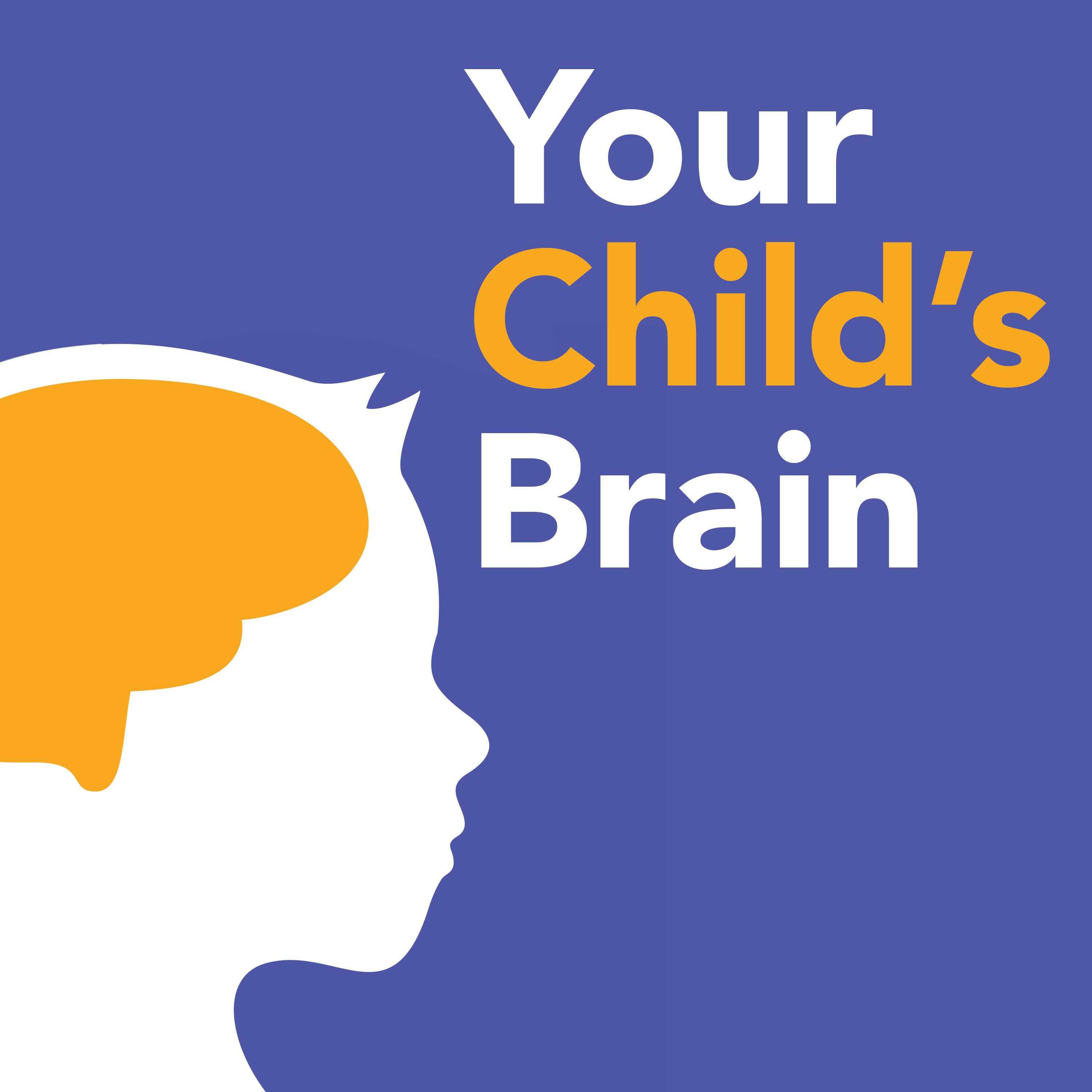The Impact of Technology on Reading and Literacy
Description
Check out the latest episode of Your Child’s Brain. Join Dr. Brad Schlaggar President and CEO of Kennedy Krieger Institute and his guests Heidi Daniel, president and CEO at the Enoch Pratt Free Library in Baltimore, and Dr. Tzipi Horowitz-Kraus, a developmental neuroscientist at Kennedy Krieger Institute as we discuss children's reading, literacy, and the impact of technology on both.
Links to visit:
Enoch Pratt library Summer Reading Program https://www.prattlibrary.org/summer-break
The Neurobiology of Reading podcast https://urlisolation.com/browser?clickId=796DE2A7-3F7F-4DA8-A057-296FDC84DFF0&traceToken=1682690228%3Bkennedykrieger_hosted%3Bhttps%3A%2Fwww.youtube.com%2Fwatch%3Fv%3DS&url=https%3A%2F%2Fwww.youtube.com%2Fwatch%3Fv%3DS_7brlIMa_k
Dr. Brad Schlaggar (BS): Welcome to Your Child's Brain, a podcast series produced by Kennedy Krieger Institute with assistance from WYPR. I'm Dr. Brad Schlaggar, pediatric neurologist and president and CEO of Kennedy Krieger Institute. One of the most distinctive features of the human brain is its capacity for language. Arguably, our brains have evolved to produce spoken and heard language. But exactly when that capacity emerged in humans is debated, in the scientific literature, spoken language likely emerged no less than a couple of 100,000 years ago and perhaps as long ago as one million or more years. On the other hand, the invention of the written form of language and therefore the origins of reading, came roughly 5,000 years ago. Simply put, while our brains evolved for spoken language, reading and writing are far too recent to have been drivers for the evolution of our brains. It has only been in the last several 100 years that human society has put such a premium on the value of reading that large portions of society learned to read. That said, in Maryland and in the US as a whole and while estimates vary, roughly one in five adults has very low or absent literacy skills, contributing to significant challenges for the health and welfare of those individuals. For some, reading difficulty is largely the consequence of lack of access to quality education while for others, the issue is dyslexia or a reading impairment, despite sufficient intellectual ability and access to quality education. For so many reasons, it is critically important for us to understand the full complexity of how our brains learn to read and how factors in our children's life, like screen time, for example, impact the development of this crucial skill. Today, I'm joined by two guests, both with expertise that is highly relevant to a discussion of reading development and literacy. Dr. Tzipi Horwitz-Kraus from the Department of Neuropsychology at Kennedy Krieger Institute is an international leader in the neuroscience of reading development. She's an associate professor in the Department of Psychiatry and Behavioral Science at Johns Hopkins University School of Medicine. She's also an associate professor of education and science and technology and in biomedical engineering at the Technion, Israel Institute of Technology. For full disclosure, Tzipi and I are research collaborators on the neuroscience of reading development and we published several papers together. Heidi Daniel is the president and CEO of the Enoch Pratt Free Library, a true gem in Baltimore, Maryland, where she has been at the helm since July of 2017. Welcome, Tzipi and Heidi. Heidi, you're completing your sixth year leading the Enoch Pratt Free Library. I know that literacy is one of the pillars of the library's strategic plan, especially focused on digital literacy and pre-literacy. Tell us about the library's approach to literacy.
Heidi Daniel (HD): The library approaches literacy the way we approach most things through the lens of access. You mentioned having access to high-quality education and high-quality materials is really important for the development of reading and literacy in our population. The library's focus is really o
More Episodes
We humans, typically, have 23 pairs of chromosomes. Sometimes, for a variety of reasons, we have an extra chromosome or we are missing one. Down syndrome, also known as Trisomy 21, is a genetic disorder that occurs when an individual has a full or partial extra copy of their 21st chromosome. Down...
Published 11/07/24
How does experience and one’s environment influence the early development of our brains? We’ve known for a long time that this question does not simply boil down to “Nature” vs “”nurture”, a false dichotomy. Instead, brain development might best be thought of as a cascading interaction between...
Published 10/03/24
Published 10/03/24


